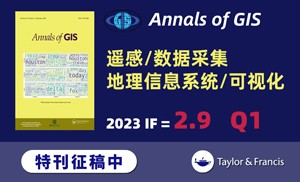Aphasiology ( IF 1.5 ) Pub Date : 2021-09-21 , DOI: 10.1080/02687038.2021.1970099 Saskia Mooijman 1, 2, 3 , Laura S. Bos 1, 2 , Elke De Witte 1, 4 , Arnaud Vincent 1 , Evy Visch-Brink 1 , Djaina Satoer 1
ABSTRACT
Background
Glioma (brain tumour) patients can suffer from mild linguistic and non-linguistic cognitive problems when the glioma is localised in an eloquent brain area. Word-finding problems are among the most frequently reported complaints. However, mild problems are difficult to measure with standard language tests because they are generally designed for more severe aphasic patients.
Aims
The aim of the present study was to investigate whether word-finding problems reported by patients with a glioma can be objectified with a standard object naming test, and a linguistic processing speed test. In addition, we examined whether word-finding problems and linguistic processing speed are related to non-verbal cognitive abilities.
Methods & Procedures
We tested glioma patients (N=36) as part of their standard pre-treatment clinical work-up. Word-finding problems were identified by a clinical linguist during the anamnesis. Linguistic processing speed was assessed with a newly designed sentence judgment test (SJT) as part of the Diagnostic Instrument for Mild Aphasia (DIMA), lexical retrieval with the Boston Naming Test (BNT), presence of aphasia with a Token Test (TT), and non-verbal processing with the Trail Making Test A and B (TMT). Test performances of glioma patients were compared to those of healthy control participants (N=35).
Outcomes & Results
The results show that many glioma patients (58%) report word-finding problems; these complaints were in only half of the cases supported by deviant scores on the BNT. Moreover, the presence of reported word-finding problems did not correlate with the BNT scores. However, word-finding problems were significantly correlated with reaction times on the SJT and the TMT. Although there were no significant differences between the patient and control group on the SJT, a subgroup of patients with a glioma in the frontal lobe of the language-dominant hemisphere was slower on the SJT. Finally, performance on the SJT and TMT were significantly correlated in the patient group but not in the control group.
Conclusions
Linguistic processing speed appears to be an important factor in explaining reported word-finding problems. Moreover, the overlap between speed of language processing and non-verbal processing indicates that patients may rely on more domain-general cognitive abilities as compared to healthy participants. The variability observed between patients emphasises the need for tailored neuro-linguistic assessments including an extensive anamnesis regarding language problems in clinical work-up.
中文翻译:

神经胶质瘤患者的语言处理:速度还是准确性作为敏感指标?
摘要
背景
当神经胶质瘤位于功能强大的脑区时,神经胶质瘤(脑肿瘤)患者可能会出现轻微的语言和非语言认知问题。找词问题是最常报告的投诉之一。然而,轻度问题很难用标准语言测试来衡量,因为它们通常是为更严重的失语症患者设计的。
目标
本研究的目的是调查是否可以通过标准对象命名测试和语言处理速度测试来客观化胶质瘤患者报告的单词查找问题。此外,我们检查了单词查找问题和语言处理速度是否与非语言认知能力有关。
方法和程序
我们测试了胶质瘤患者 (N=36) 作为他们标准治疗前临床检查的一部分。一位临床语言学家在回忆过程中发现了单词查找问题。语言处理速度通过新设计的句子判断测试 (SJT) 作为轻度失语症诊断工具 (DIMA) 的一部分、波士顿命名测试 (BNT) 的词汇检索、令牌测试 (TT) 的失语症的存在进行评估,以及使用 Trail Making Test A 和 B (TMT) 进行的非语言处理。将胶质瘤患者的测试表现与健康对照参与者(N = 35)进行比较。
结果和结果
结果表明,许多神经胶质瘤患者(58%)报告了找词问题;这些投诉仅在 BNT 异常分数支持的案例中占一半。此外,报告的单词查找问题的存在与 BNT 分数无关。然而,单词查找问题与 SJT 和 TMT 的反应时间显着相关。尽管 SJT 上患者和对照组之间没有显着差异,但语言优势半球额叶胶质瘤的亚组患者在 SJT 上的速度较慢。最后,SJT 和 TMT 的表现在患者组中显着相关,但在对照组中没有。
结论
语言处理速度似乎是解释报告的找词问题的一个重要因素。此外,语言处理速度和非语言处理速度之间的重叠表明,与健康参与者相比,患者可能依赖于更多领域的一般认知能力。患者之间观察到的变异性强调需要量身定制的神经语言评估,包括对临床检查中语言问题的广泛病历。









































 京公网安备 11010802027423号
京公网安备 11010802027423号